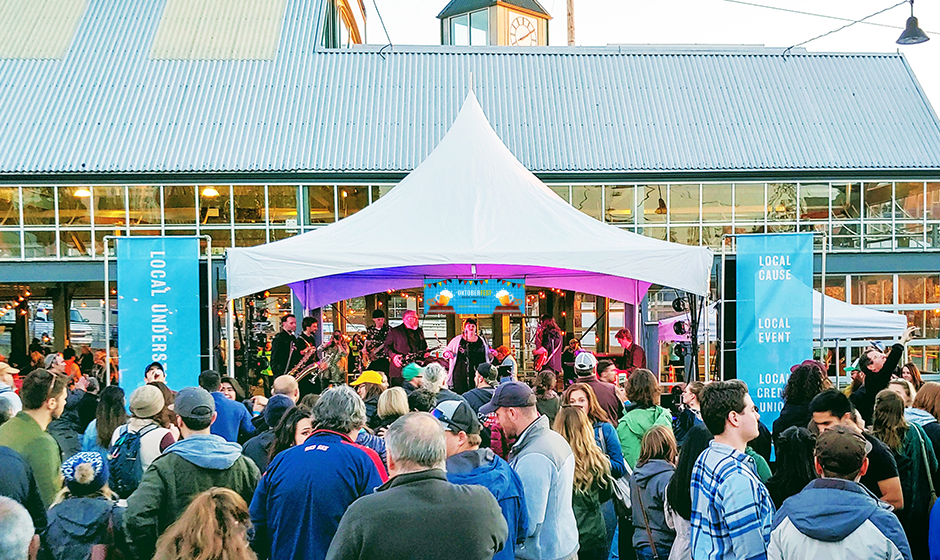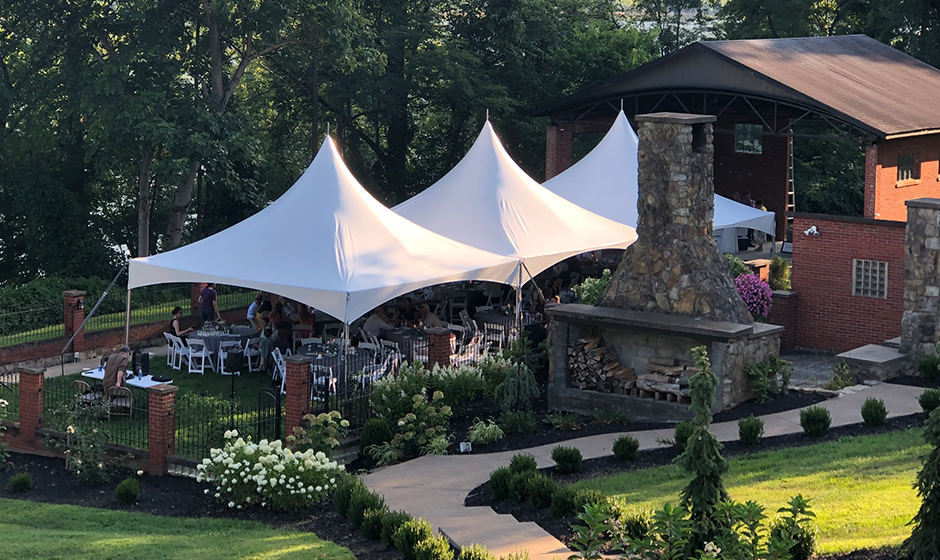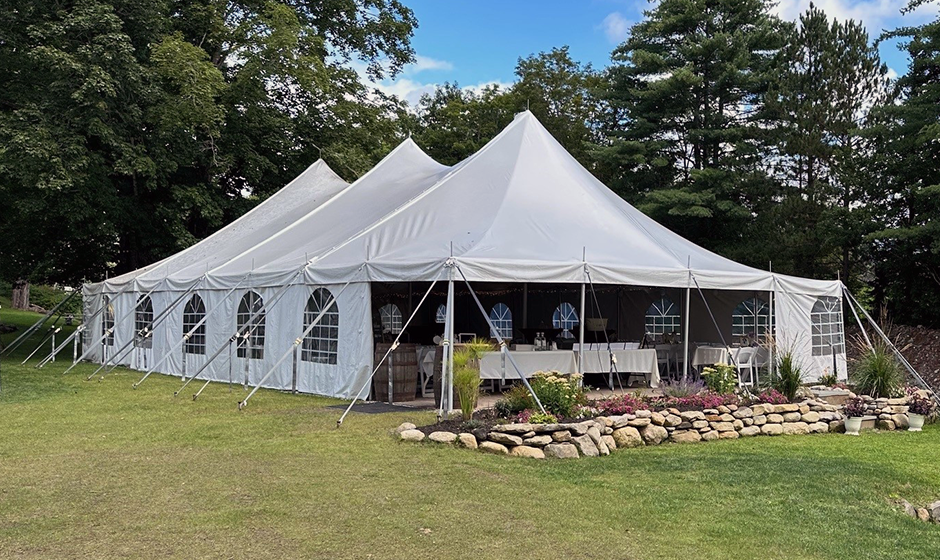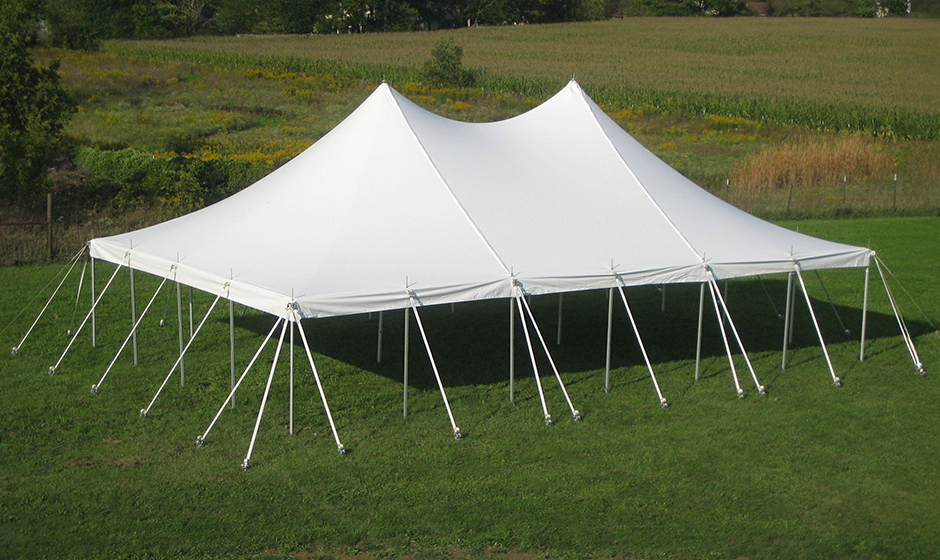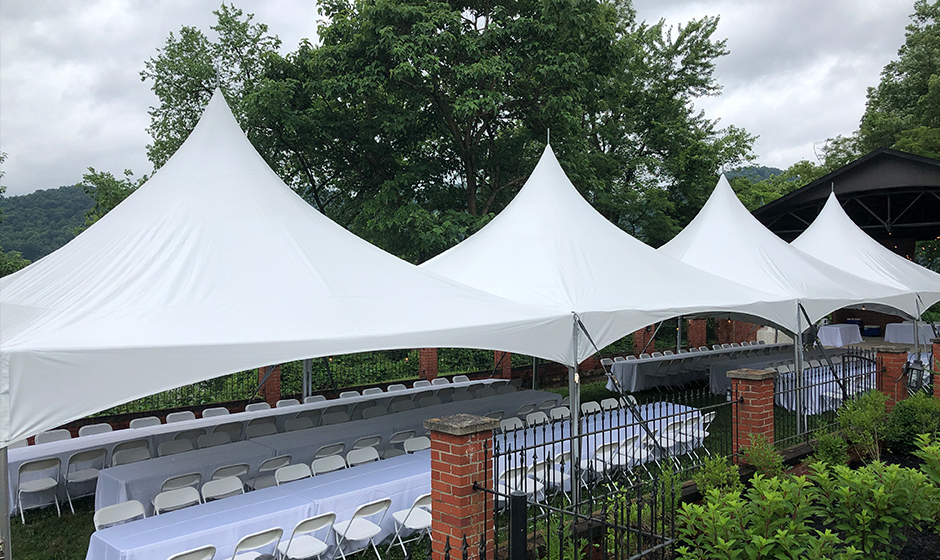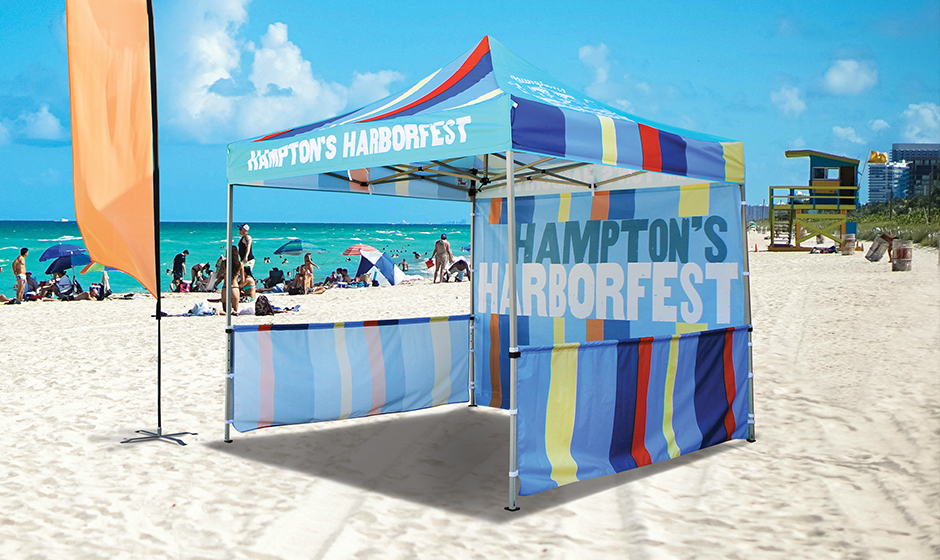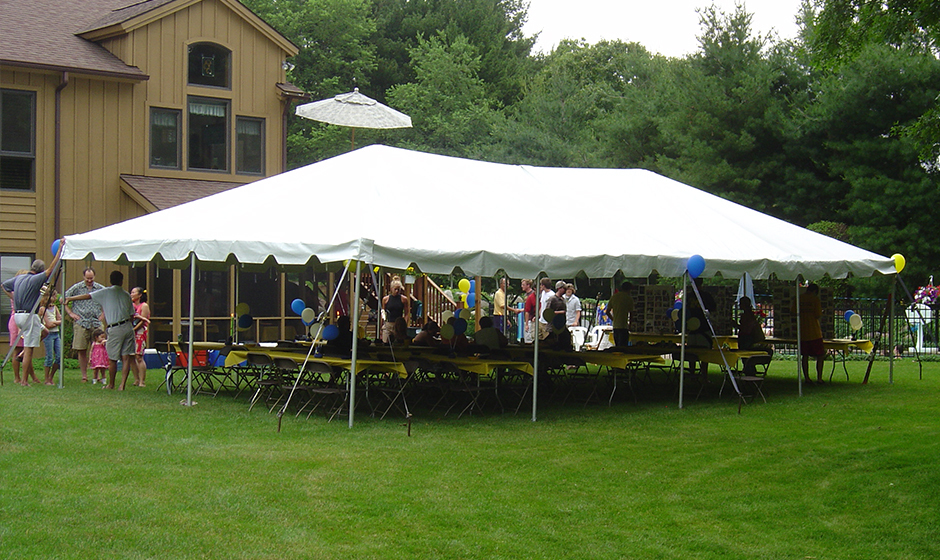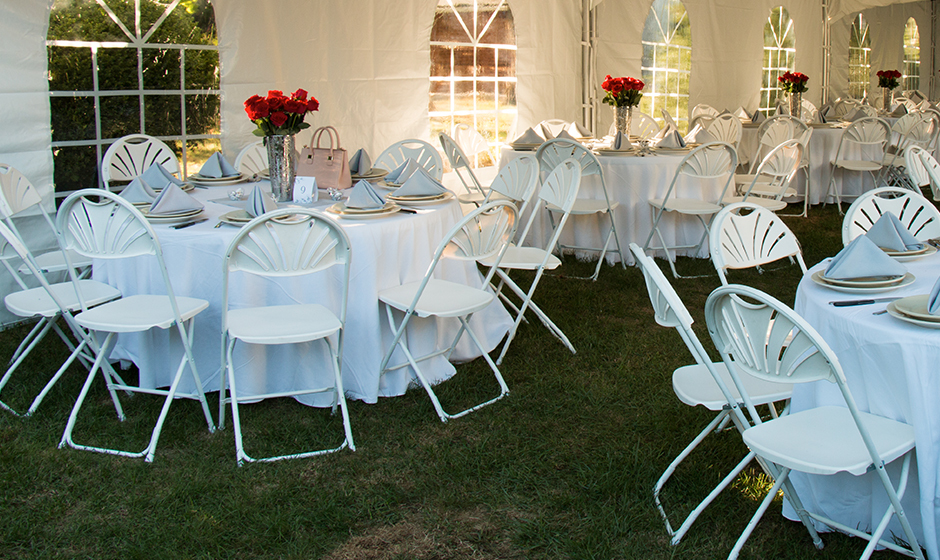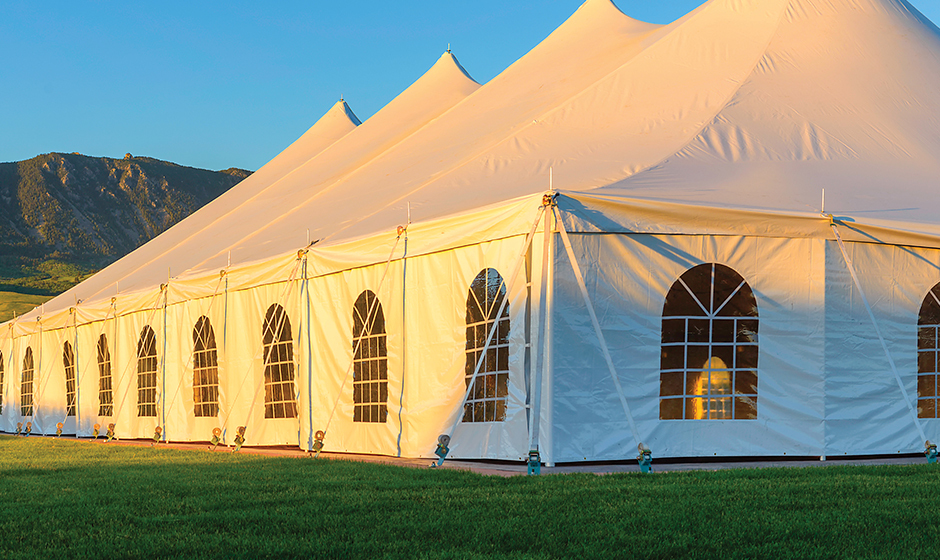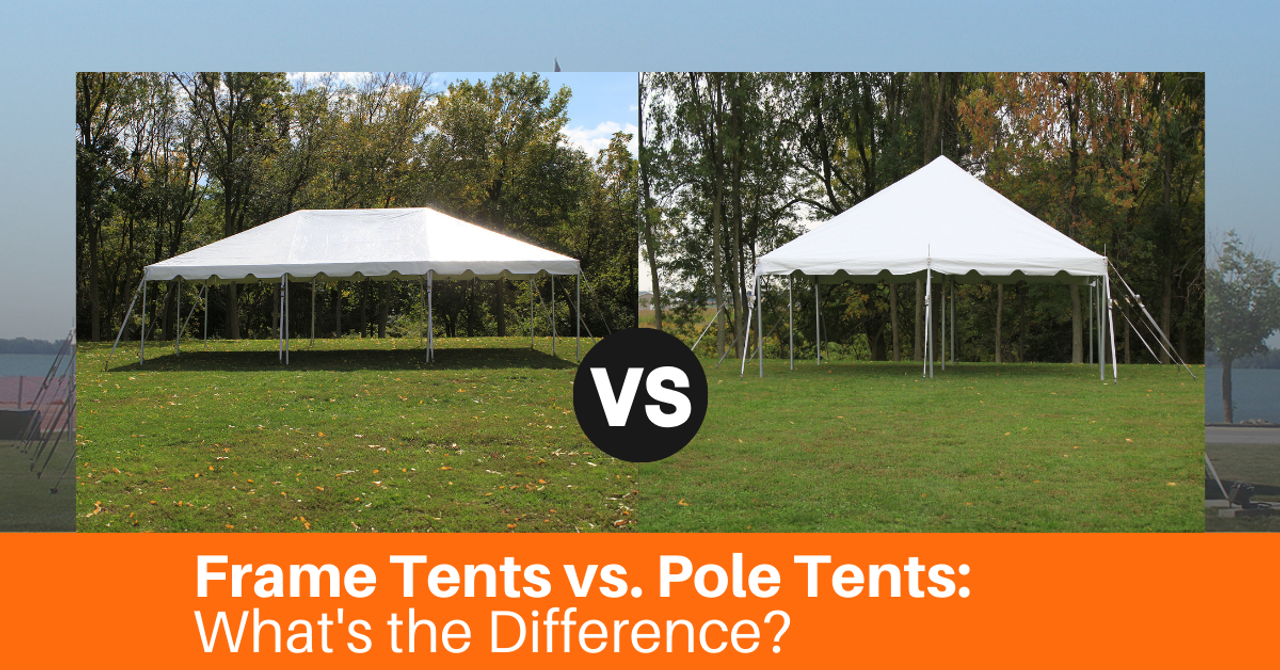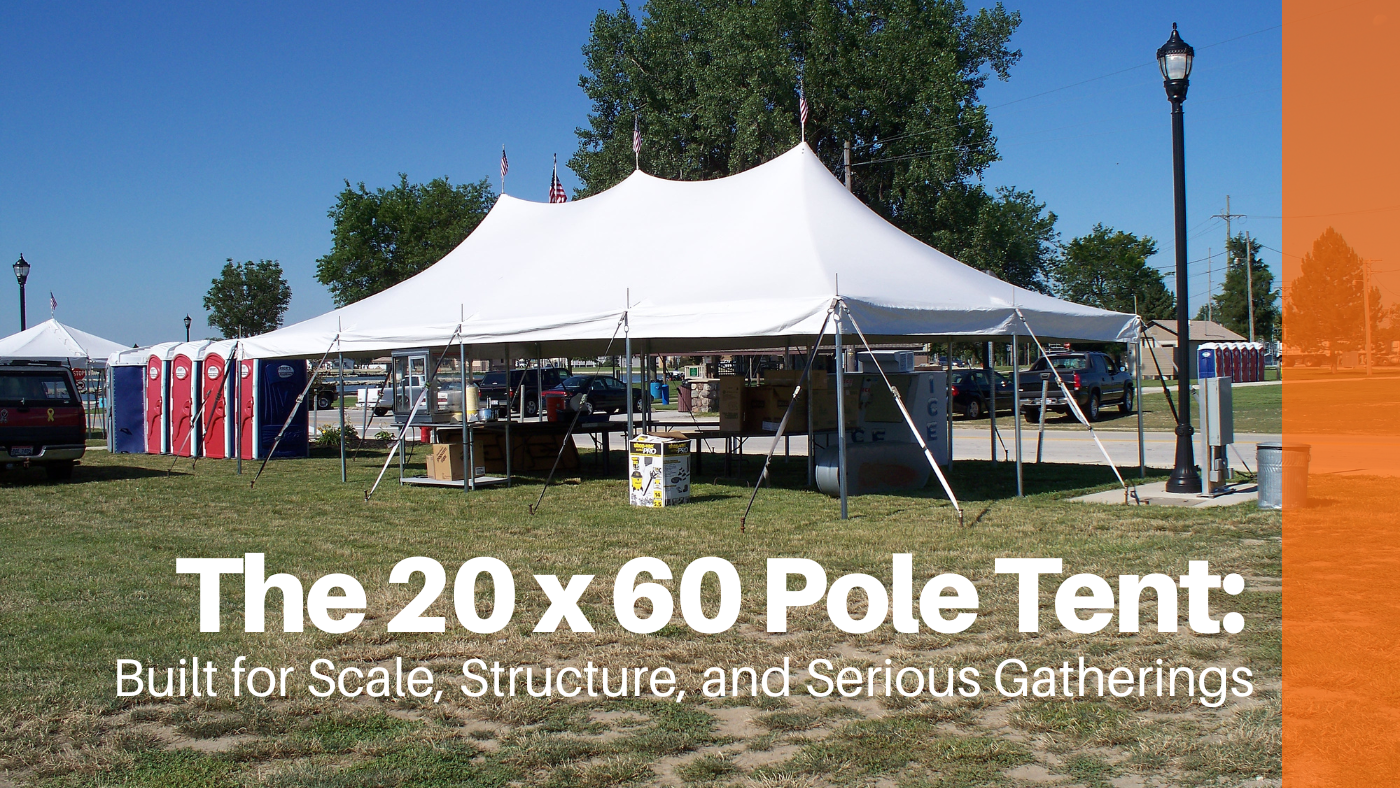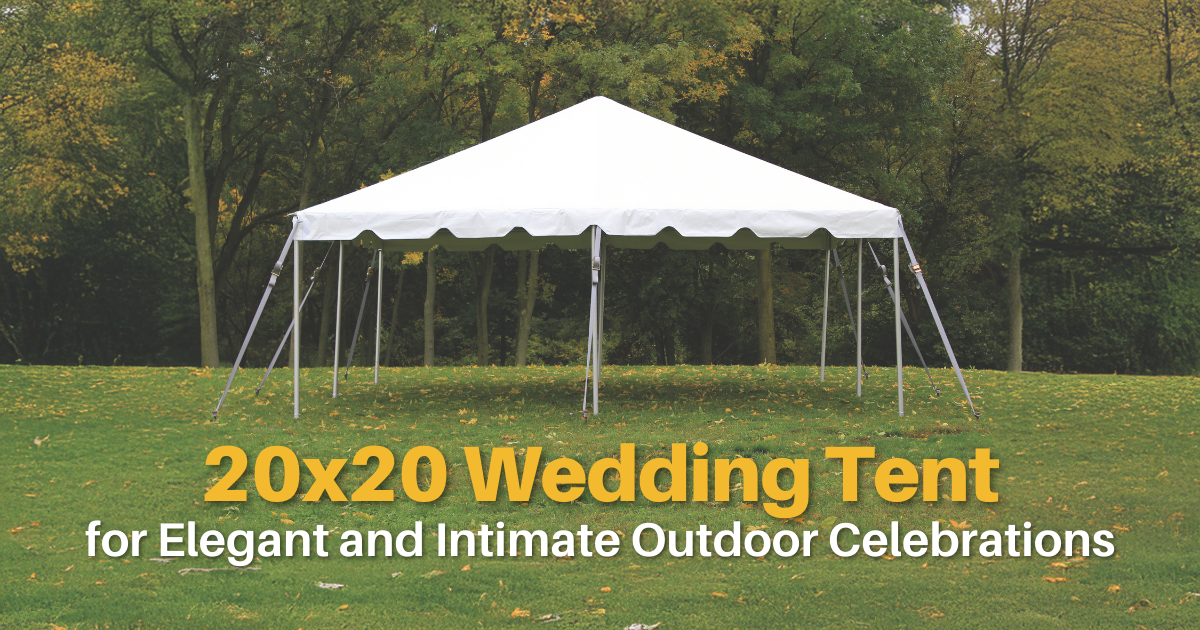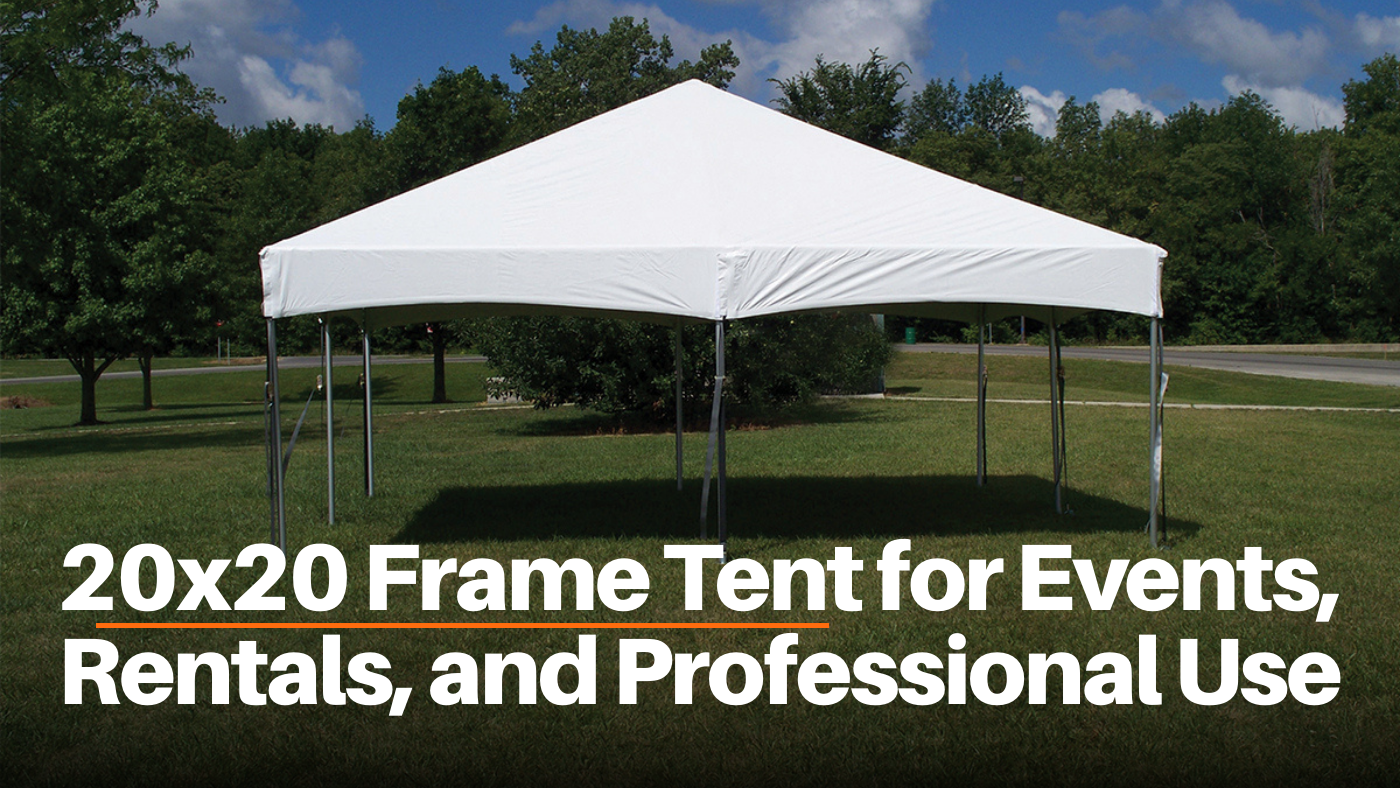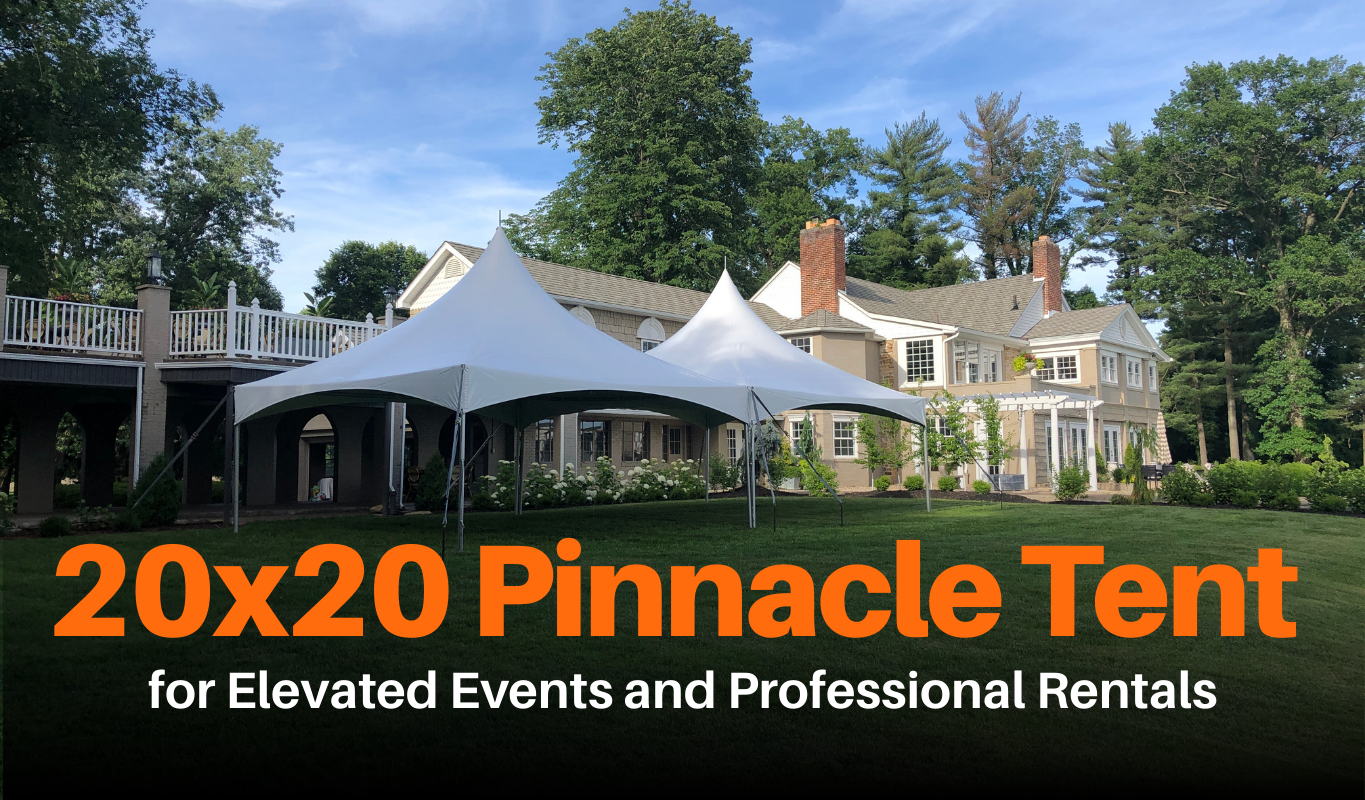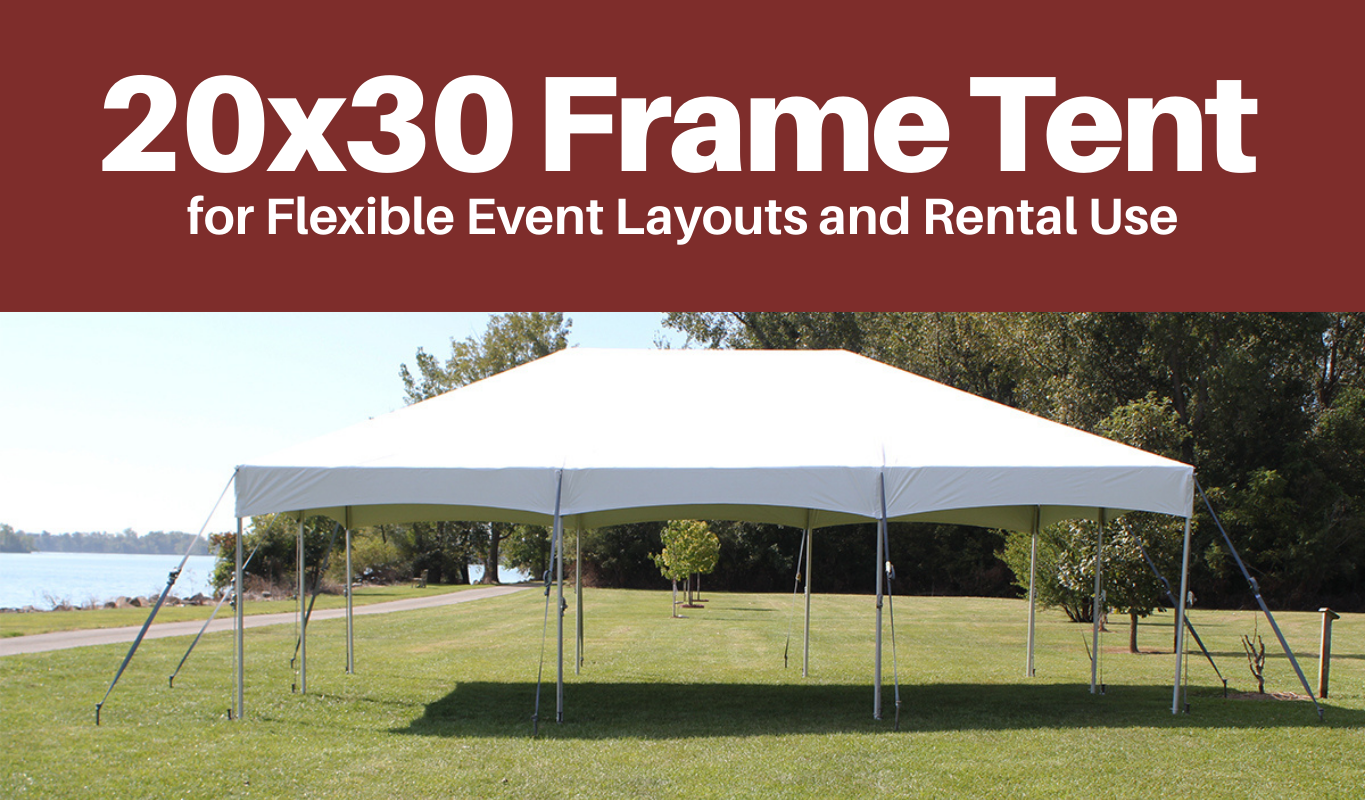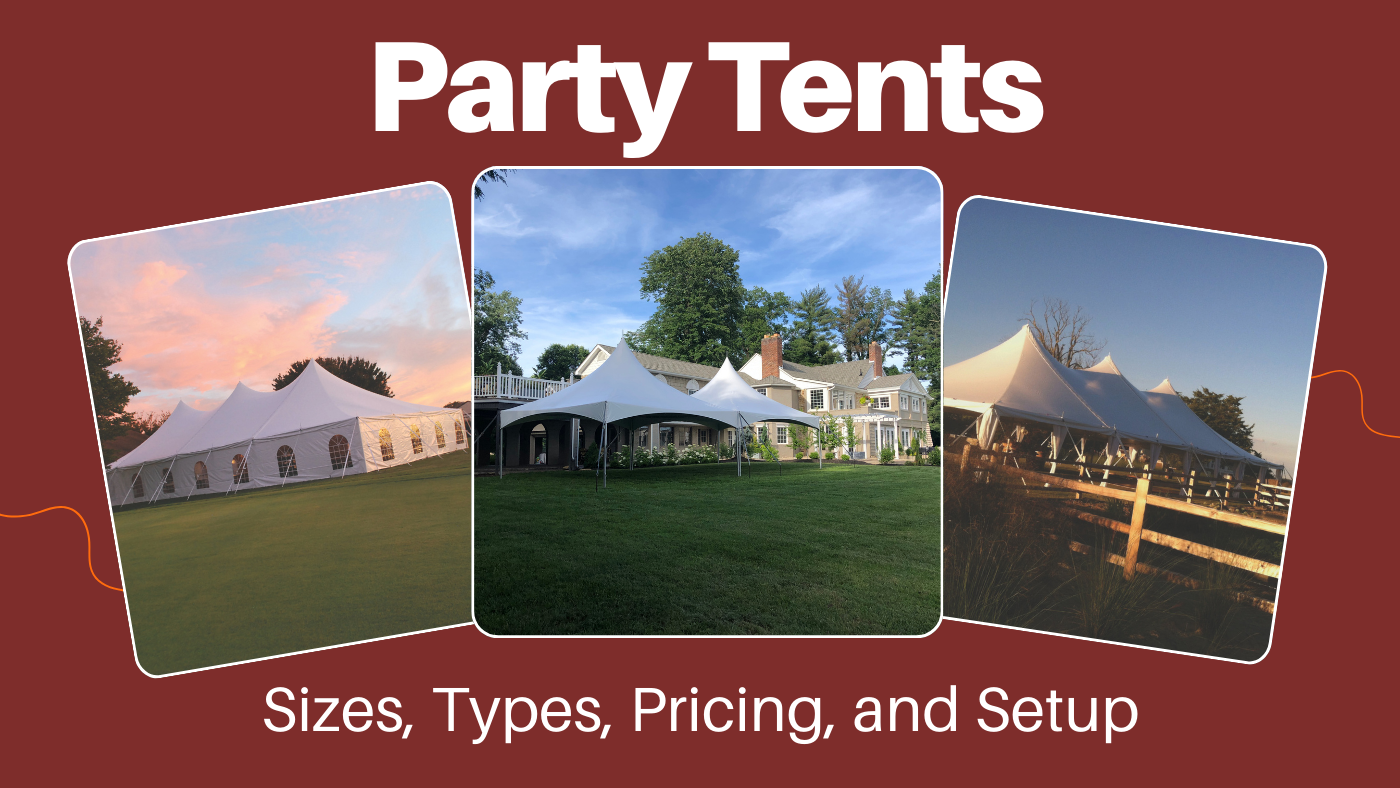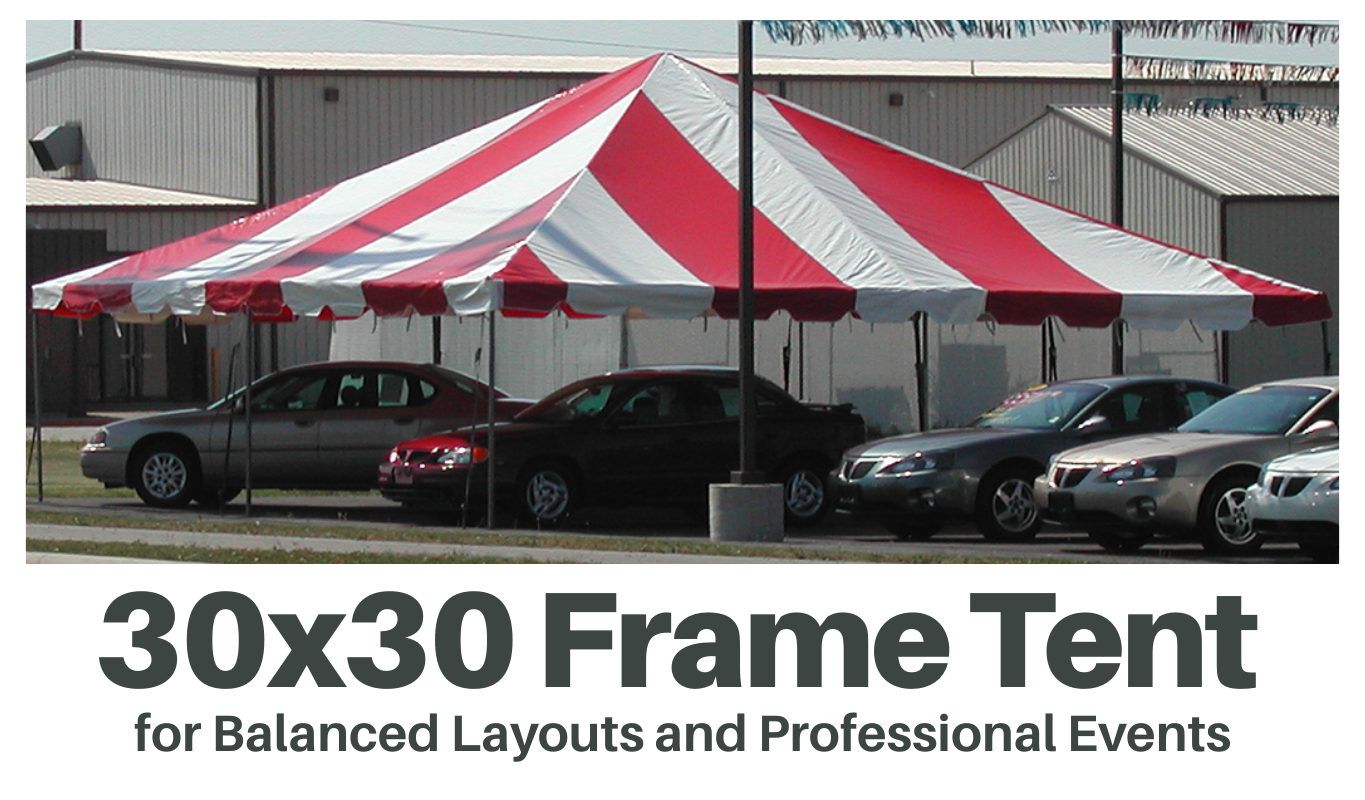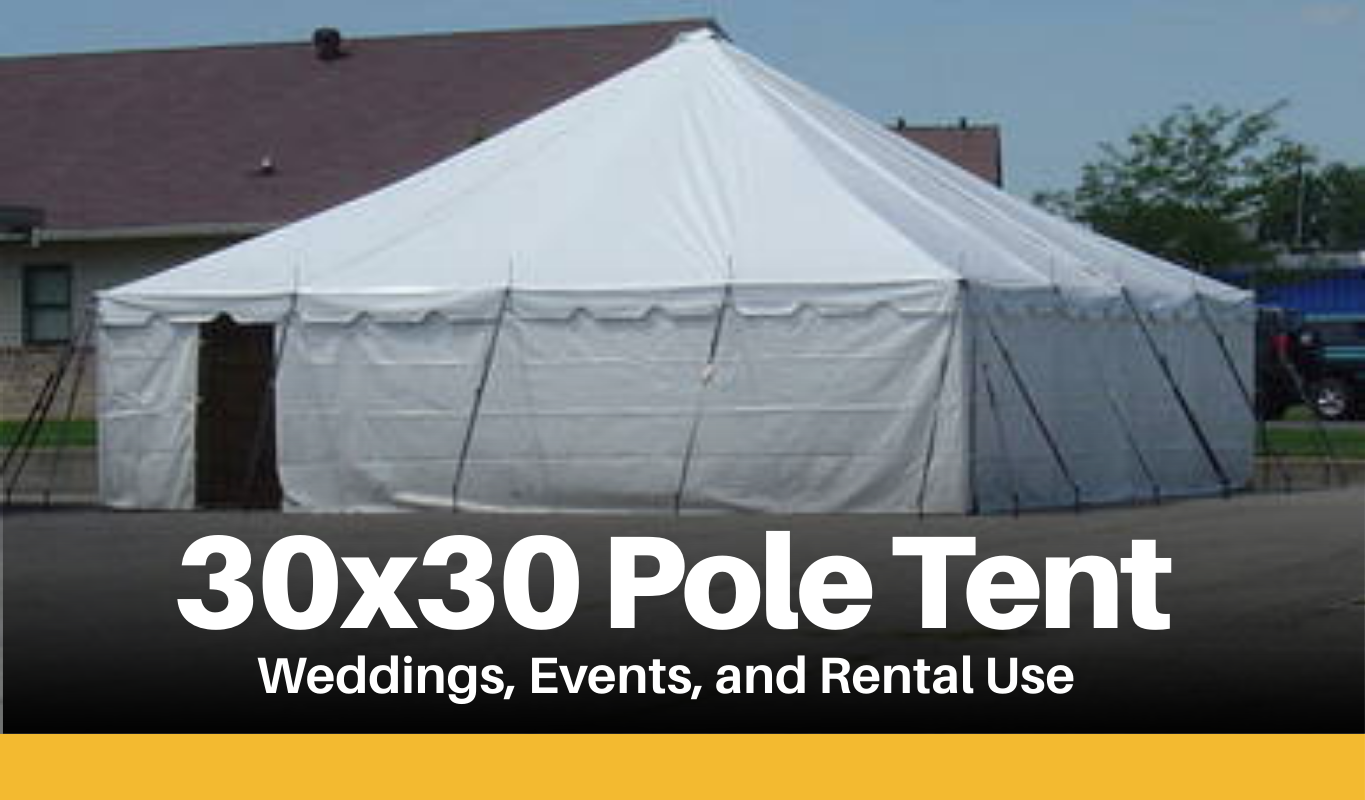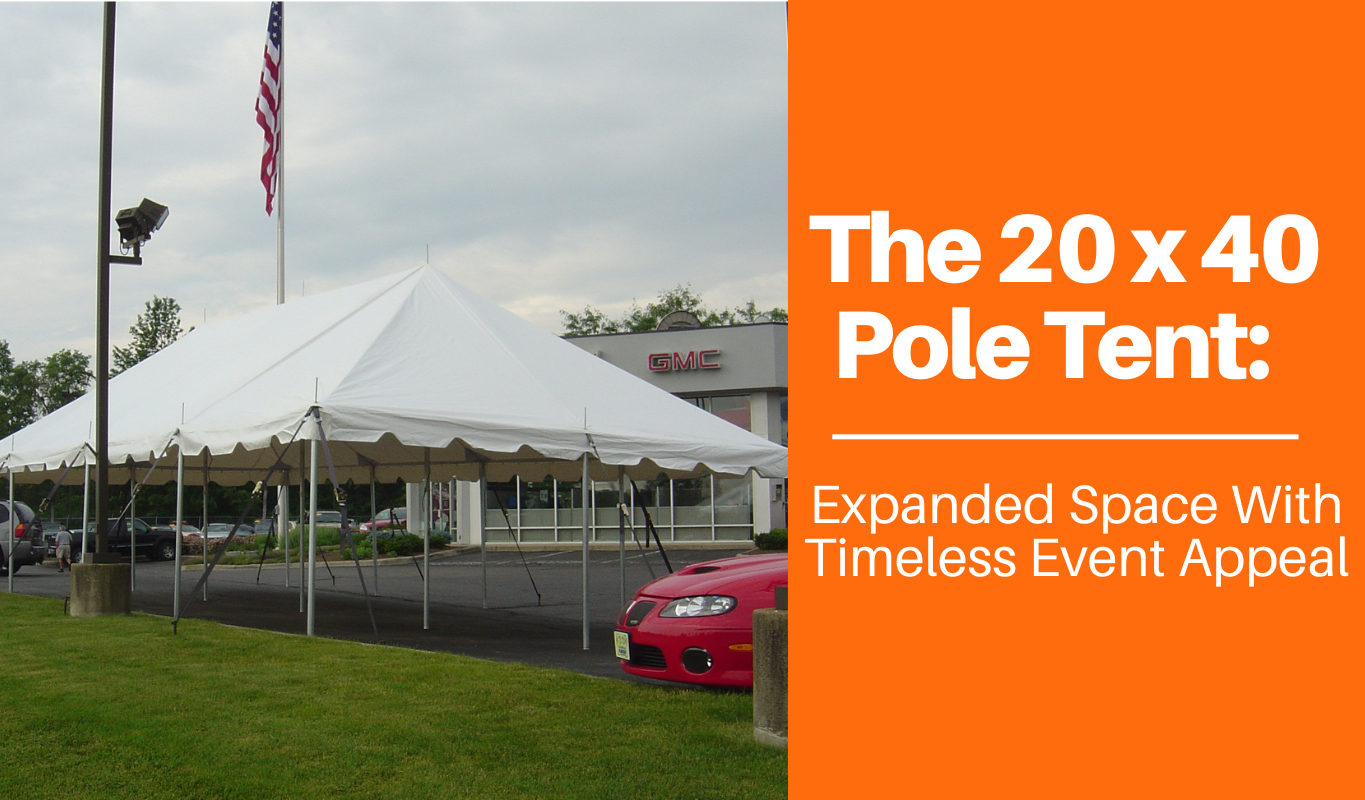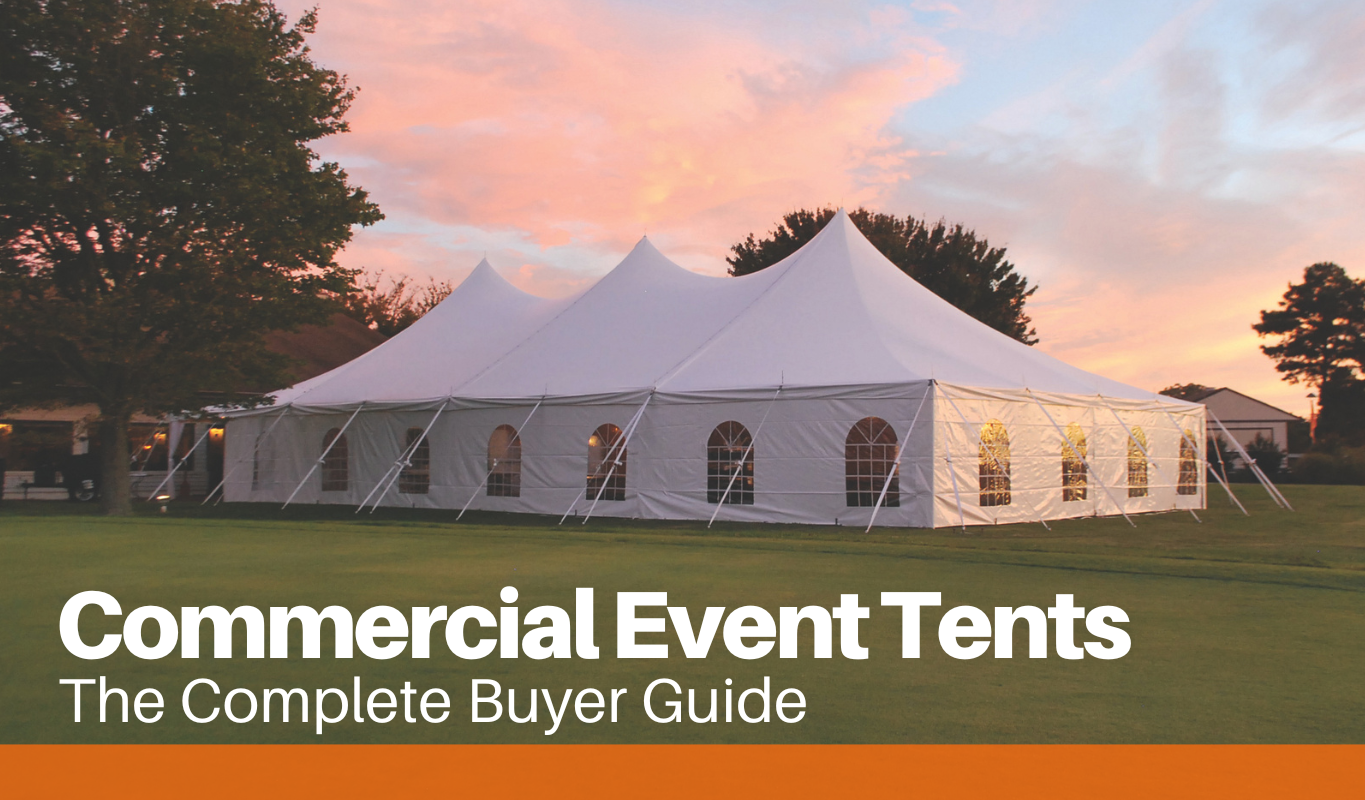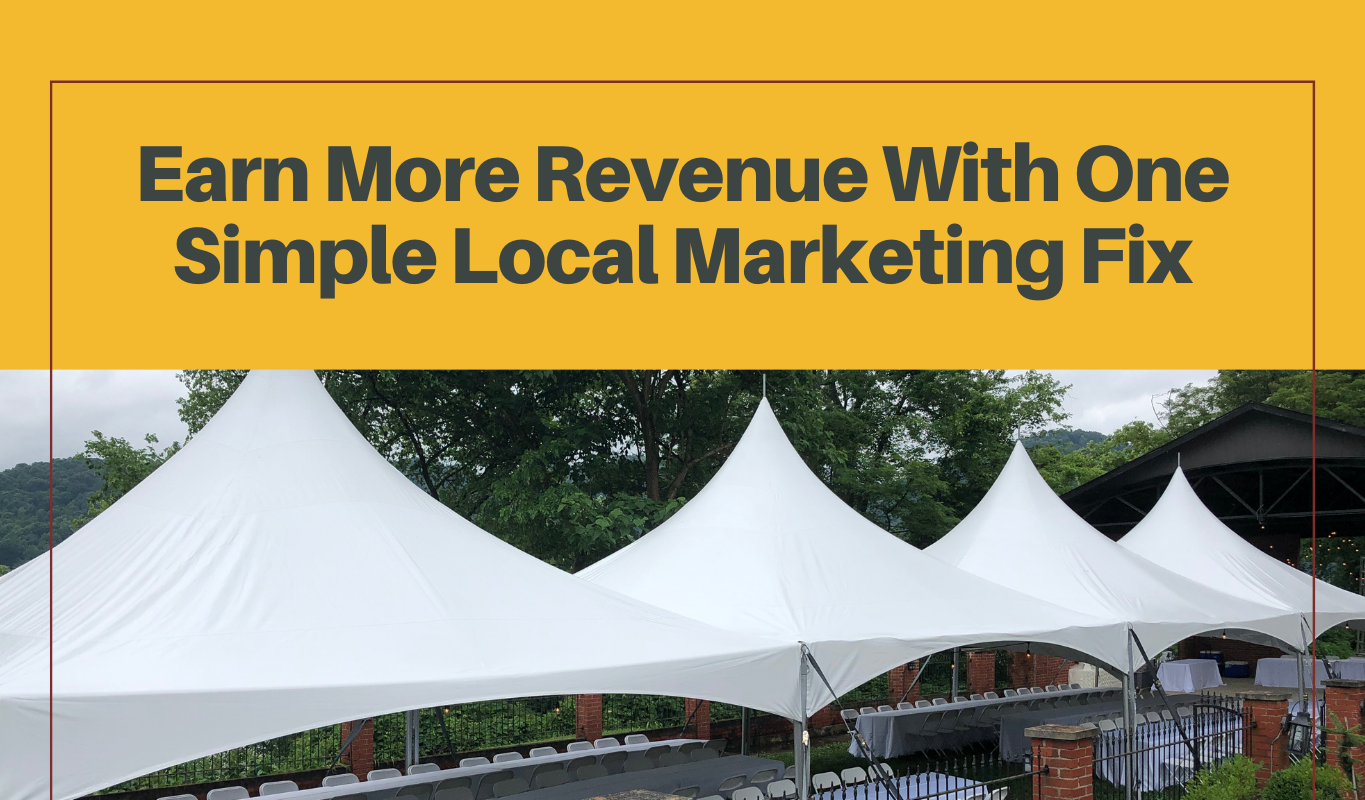Frame Tent vs. Pole Tent: What's the Difference?
When it comes to event tents, two main styles dominate the market: frame tents and pole tents. As the names suggest, the difference lies in how they’re supported—either by a structured frame or a series of poles and tensioned fabric. The debate over frame tent vs. pole tent continues, so let’s make it straightforward.
But if you're still here, I’m guessing you want a little more detail. Okay, let’s break it down!
Structural Differences: Freestanding vs. Tension-Based
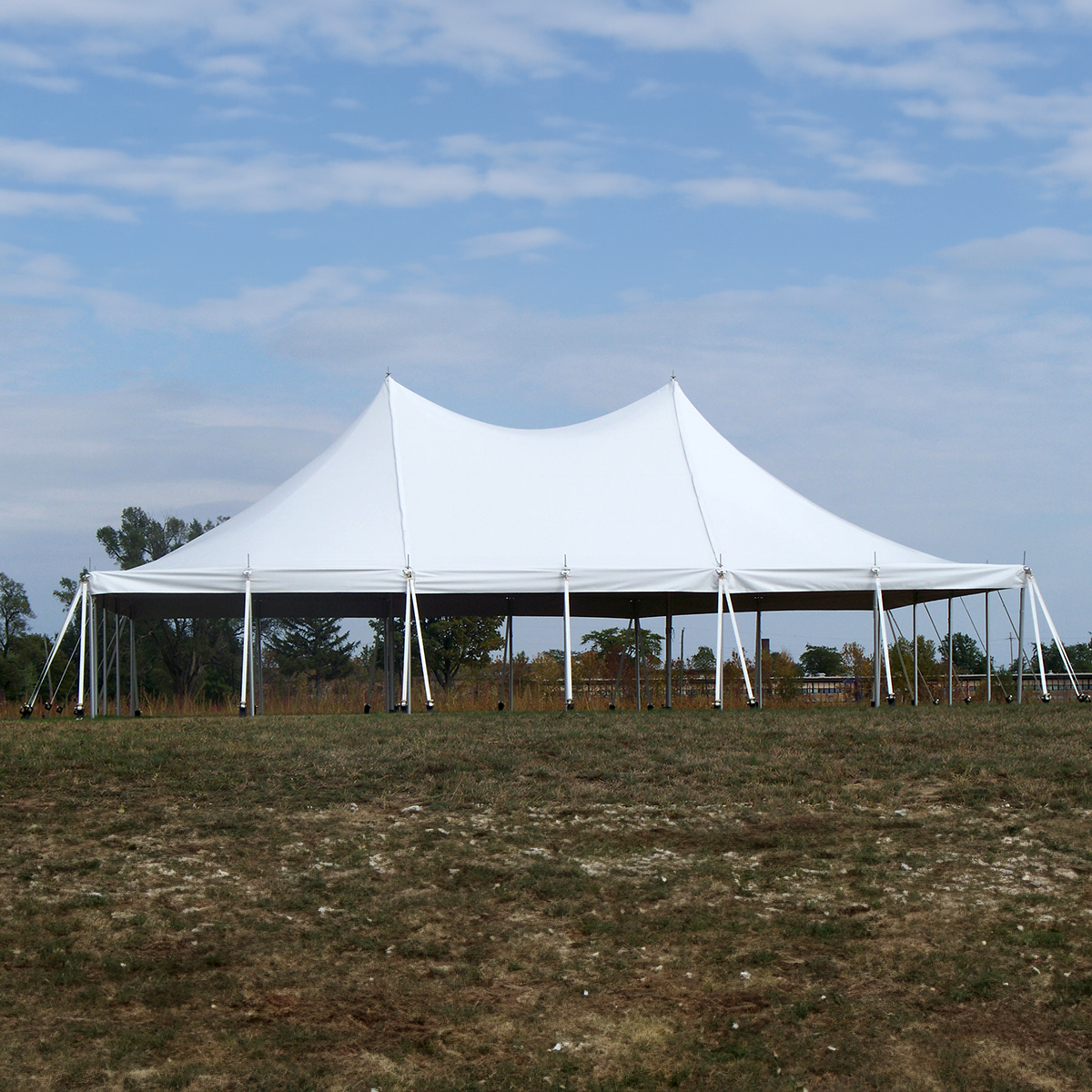
Pole Tents
Rely on a tension-based design using stakes and guy lines to keep the structure upright. Central poles provide support and create elegant peaks. Best used on grass or soft ground.
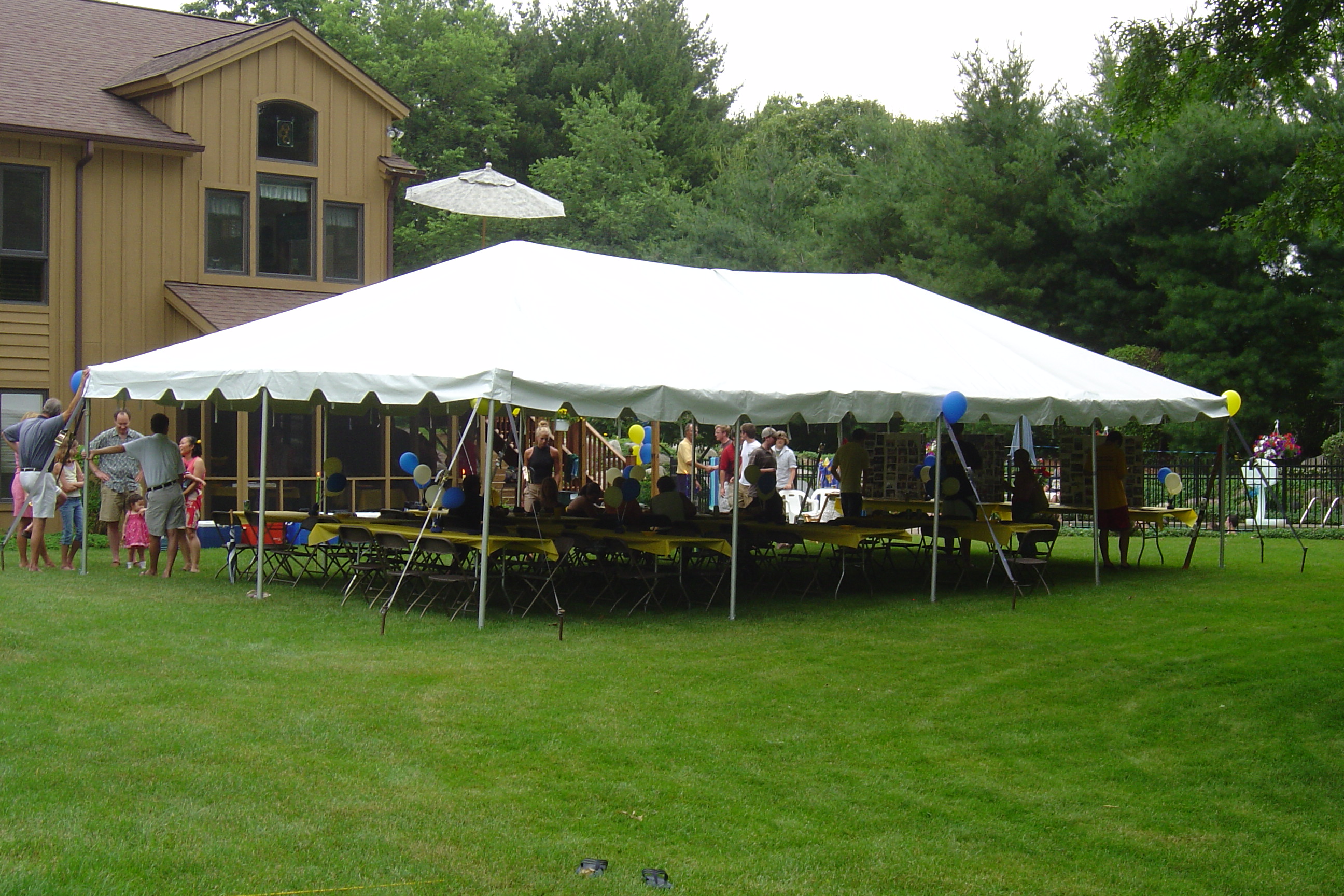
Frame Tents
Use a rigid framework of interconnected poles and fittings to stand independently—no center poles on the ground. Open interiors with unobstructed space; still require proper anchoring.
Appearance: Sharp Peaks or Clean Lines?
Pole Tents: The high peaks and sweeping curves of pole tents give them a classic, elegant look, making them a favorite for weddings and upscale events. However, the presence of center poles can slightly restrict interior layout options.
Frame Tents: With a more structured and angular design, frame tents resemble buildings with straight, defined edges. They offer a clean, modern appearance and are great for trade shows, outdoor restaurants, and long-term installations.
| Visual Aspect | Pole Tent | Frame Tent |
|---|---|---|
| Roofline | High peaks, flowing curves | Straight lines, modern profile |
| Interior Feel | Romantic, classic; center poles present | Clean, open; no center poles |
| Best For | Weddings, upscale parties | Corporate, trade shows, long-term |
Setup and Portability: Which One is Easier?
Frame Tents: More components (fittings, connectors, support bars) and longer assembly time with a larger crew. In return, you get a sturdy, all-weather structure that installs on many surfaces.
Pole Tents: Fewer parts make them easier to transport and faster to set up. Require stakes and guy lines, limiting installation on pavement or tight sites.
Durability & Weather Resistance: Which Handles the Elements Better?
- Frame Tents: Typically sturdier in wind; ballast required on hard surfaces. Perform better in heavy rain or snow thanks to rigid structure and weight options.
- Pole Tents: Excellent wind stability due to tensioned design—when properly staked. Handle rain well; prolonged snow load may require active management.
If your region sees strong winds, heavy rain, or unpredictable weather, frame tents are often the better long-term investment.
Frame Tent vs. Pole Tent: Cost and Budget
Frame Tents: Higher upfront cost due to their metal framework and fittings, but more versatile and long-lasting.
- Long lifespan thanks to durable materials and fittings.
- Installs on pavement, concrete, and uneven surfaces.
- Strong choice for rental fleets due to versatility.
Pole Tents: More affordable and quicker to set up, but limited to grassy areas or soft ground.
- Lower initial investment with faster setups (reduced labor).
- Best on grass/soft ground; staking required.
- Great for short-term or one-time events.
Maintenance: Keeping Your Tent in Top Shape
- Frame Tents: Inspect metal for rust/dents; tighten fittings regularly. Clean fabric with mild soap and store dry to prevent mildew.
- Pole Tents: Check ropes, stakes, and poles for wear before each event. Keep fabric taut and clean after exposure to dust, mud, or rain.
Choosing the Right Tent for Your Event
Go With a Frame Tent If You Need:
- Maximum interior space (no center poles).
- Installation on hard surfaces (parking lots, patios, rooftops).
- A modern, professional look (corporate events, trade shows, long-term setups).
- Long-term or semi-permanent use (outdoor restaurants, covered walkways).
Choose a Pole Tent If You Want:
- A classic, romantic aesthetic (weddings, upscale parties).
- Quick setup for temporary installations.
- Lighter, more portable kits that transport easily.
- Traditional event feel (festivals, circus-style setups).
Still Not Sure? Quick Decision Guide
- “I’m hosting a wedding or gala on a lawn.” → Pole Tent
- “I need a tent for a festival or trade show on pavement.” → Frame Tent
- “I want a clean, open space with no center poles.” → Frame Tent
- “I love the look of high peaks and flowing fabric.” → Pole Tent




